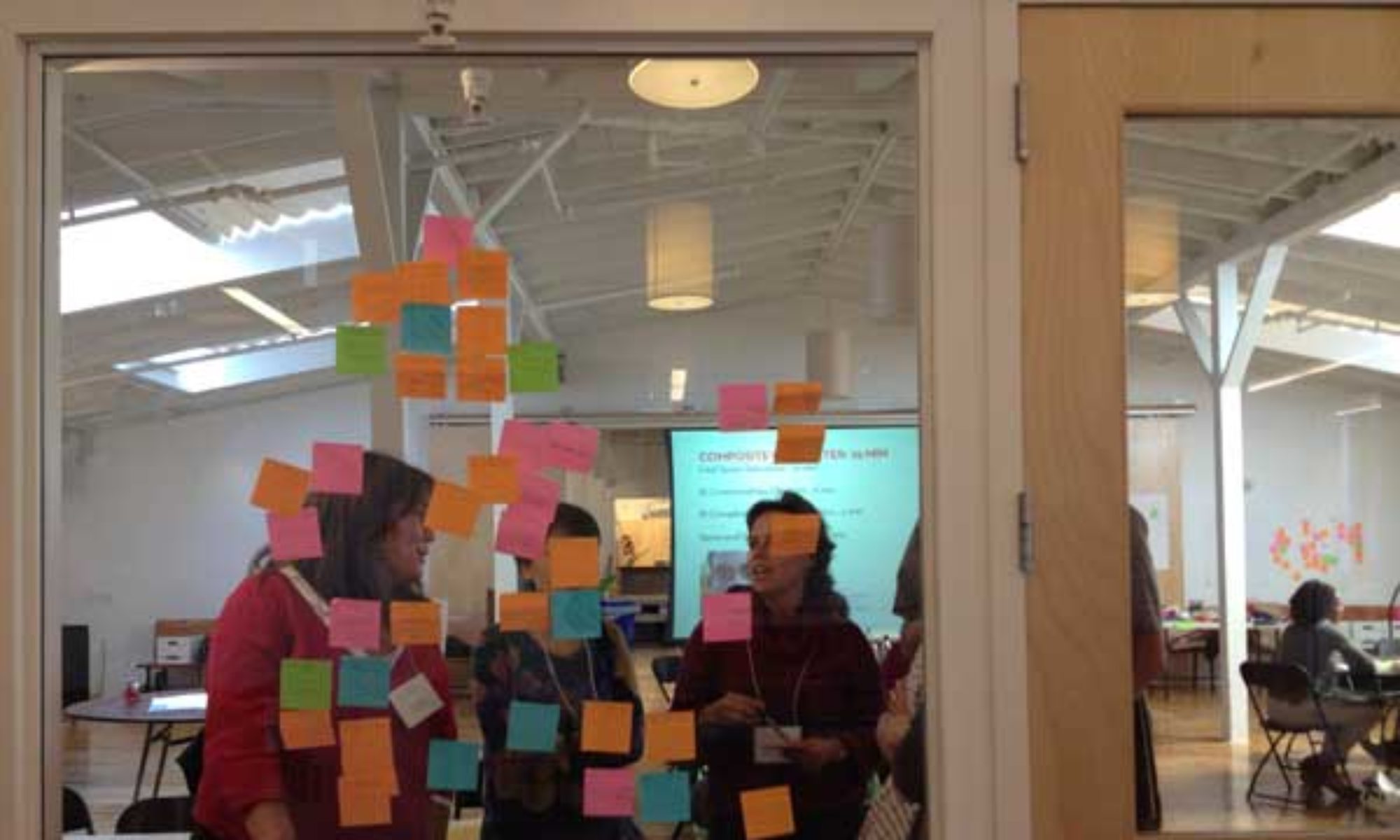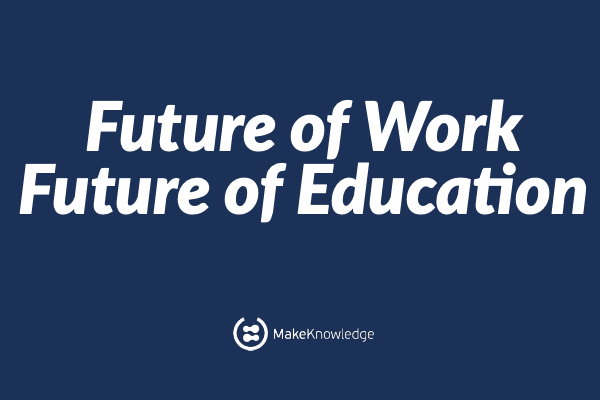The Vision
We know the world of work is changing quickly, and in many different ways: Lifetime employment is rare, the gig economy has taken off. Technology–think artificial intelligence, machine learning, robotics, and the internet of things–brings big new opportunities and dramatic uncertainties.
We know we have to prepare ourselves for a strange and dynamic new future, where work looks different, and yet much of the discussion of this problem has been hampered by deficient framing.
Of Work
Both distopic and utopic visions of the future of work misleadingly center technology as the only driver. Both the sentiments “Oh no, robots will take all our jobs” and “after the robots take over all we need to do is figure out how to use our free time” ignore the context of work as it is now and may be in the future. Many discussions (re)define work down to things machines can do: solving problems; doing tasks; and using skills. But we know that for humans good work includes richer dimensions than simple rote performances. For instance we know that our competence at work grows along with our autonomy, and a sense of belonging. We desperately need discussions that recognize a rich and creative humanity, and the dignity of everyone. There seems to be little recognition of the fact that, even now, work isn’t working for many people. And the discussions about the future of work are overwhelmingly led by people not representative of society at large— we need many more diverse voices in the mix if we want to create futures that work for all.
& Education
How does the conversation about the future of work intersect with the future of education? Driven in part by how we have defined the problem, it often seems that only industry and higher education have something to say about the future of work. K-12 and community college education are seen as just “the pipeline,” inert and passive holding areas where students and teachers are segregated for preparation (and sorting), not participation in these discussions and future-building. But if education is more than just the transfer of skills and information, if it is not “far downstream from culture” but in fact central to our society’s sustainability, then all of education needs a bigger place in this discussion about the future of work. And those of us in education — students, teachers, education leaders — need to find our voices in these conversations. In joining these conversations, we can rekindle the public imagination, showing how schools can be engines of opportunity and innovation, and a vital part of the new world of life-long learning.
The Conference: February 2020 & Beyond
In February 2020, just before COVID hit the US, we kicked off the first big event to re-humanize the conversation about The Future of Work and The Future of Education. We’re brought together an incredibly talented, diverse, and thoughtful group of leaders and practitioners in education, industry, government, and philanthropy — from the US and around the world. We were joined by participants from across the US and virtually from as far as Spain, Senegal, Canada, and South Africa.
We hope you’ll check out the talks from this event, and join us to help build a vision for a vibrant and sustainable future for all, and to light sparks of conversations and action in your own communities near and far.
Speakers include:
Roy Bahat (@roybahat) is the head of Bloomberg Beta, a venture fund backed by Bloomberg L.P. that invests in companies that make business work better.
Bloomberg Beta has an unusual model for a corporate-backed venture fund. It invests for financial return and strives to work in the same new ways as startups who define the future of work — transparent (with its full operating manual open sourced at http://bloombergbeta.com) and driven by data (with a program to statistically predict who will start companies in the future). Check out Roy’s wonderful TED Salon interview on work.
Dr. Elisha Smith Arrillaga (@ESArrillaga) serves as the Executive Director of The Education Trust–West, a research and advocacy organization focused on educational justice and supporting the high achievement of all California students, with a particular focus on underserved students of color, low-income students, and English learners. Dr. Smith Arrillaga leads the organization’s work centering education as a key racial and economic justice issue and has extensive expertise in leading initiatives using multiple strategies for impacting state policy – leveraging direct action, research, media, and policymaker engagement.
Otis Hackney (@OtisHackney) is chief education officer for the City of Philadelphia, appointed by Mayor Jim Kenney to lead new educational initiatives like increasing free, quality pre-K for 6,500 three- and four-year-olds and creating 25 community schools over the next three years. A Philadelphia native, he began his career as a mathematics teacher at Germantown High School. After teaching and serving as an administrator in various schools, Hackney returned to South Philadelphia High School in 2010 as principal, where he successfully helped heal divisions after high-profile instances of racially motivated school violence. Under his leadership, the school also adopted a “community school” approach by creating unique partnerships that expanded support services and programs for students and families. With a core belief that students come first, Hackney is working to improve educational opportunities for our children.
Autumn McDonald (@Autumn_McDo) is the director of New America CA—the largest hub of New America—which is focused on promoting locally-grown efforts, grounded in economic equity, in which innovation and compelling storytelling yield transformative solutions for our most marginalized community members. She has nearly two decades of experience working with foundations, nonprofit organizations, and government agencies on strategy, advocacy, and civic innovation. Her work has focused on coalition building and innovative problem solving in service of social justice.
Youngmoo Kim (@youngmoo) is Director of the Expressive and Creative Interaction Technologies (ExCITe) Center and Professor of Electrical and Computer Engineering at Drexel University in Philadelphia. His research group, the Music & Entertainment Technology Laboratory (MET-lab) focuses on the machine understanding of audio, particularly for music information retrieval. Other areas of active research at MET-lab include human-machine interfaces and robotics for expressive interaction, analysis-synthesis of sound, and K-12 outreach for engineering, science, and mathematics education.
Sponsorship Opportunities and Volunteering
As we plan our next events, please contact us by email for information about sponsorship, and upcoming volunteer opportunities.


